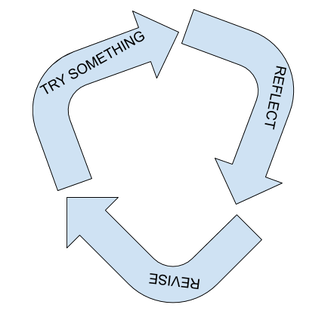Praxis Assessment
This curriculum guide is a tool that will likely produce a slightly different outcome every time it is used. Treating this program as a living entity, we see what’s working and what isn’t a good fit. This process allows for participant direction and natural evolutions.
This curriculum guide is a tool that will likely produce a slightly different outcome every time it is used. Treating this program as a living entity, we see what’s working and what isn’t a good fit. This process allows for participant direction and natural evolutions.
The success of an offering like these groups is affected by relationships. It is important for everyone in relationship to the program to participate in this try-reflect-review cycle. Participants should be given as many opportunities to influence the direction of the offering as possible.
Some examples of this include:
Clarity around the pay scale is also important for peer participants to feel respected. Consistent and well-communicated honorarium structures, including scale adjustments for late attendees, can help prevent feelings of unfairness.
AVI has used this as their payscale:
Pay Schedule for Street College
On-time - 10 minutes late = $10.00
10-30 minutes late = $5.00
After that….$0
This guide is open for group discussion and agreement. This is not hard
and fixed but is suggested as a way to respect the time of those who show up on time.
If you are going to be late, call!
Some examples of this include:
- Thumbs up, middle, down hand sign feedback tool
- Helping the group set their ground rules or community norms which may include;
- turning off cell phones
- if you're gonna be late, call/text
- no cross-talk
- respect that people can change their minds
- confidentiality
- turning off cell phones
- Feedback forms
- In-person feedback interviews
- Focus groups
- Advisory council
- Leadership track
Clarity around the pay scale is also important for peer participants to feel respected. Consistent and well-communicated honorarium structures, including scale adjustments for late attendees, can help prevent feelings of unfairness.
AVI has used this as their payscale:
Pay Schedule for Street College
On-time - 10 minutes late = $10.00
10-30 minutes late = $5.00
After that….$0
This guide is open for group discussion and agreement. This is not hard
and fixed but is suggested as a way to respect the time of those who show up on time.
If you are going to be late, call!

